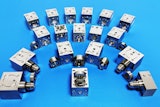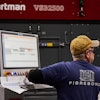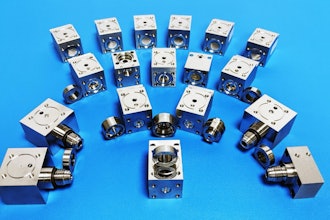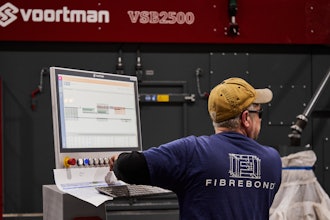Dealing with ever-increasing pressures to improve profitability and return on investments, companies across all industries are intently battling economic hardships. To combat these challenges, many companies have started investigating the availability of tax credits and incentives as a means of enhancing their competitiveness in the industry as well as fostering internal growth.
Often thought of as a boost available only to big corporations or organizations such as pharmaceutical companies for researching matters such as developing life-saving vaccines, the R&D tax credit is a tax incentive available to companies of all sizes, across multiple industries. Many food manufacturers may be losing out on substantial amounts of valuable tax credits and should recognize that the ideal time to begin capturing these incentives is now. Food manufacturers in industries such as dairy, beverages, pasta, meats, baked goods and produce can qualify for significant credits which assist companies by investing back into their businesses.
Is There Help Available?
A number of food manufacturers and processers are in fact unaware of the potential benefits the R&D tax credit has to offer. In fact, many of the activities performed by these companies on a daily basis already make them eligible for tax credits of which they don’t take advantage simply because they haven’t been made aware of their existence. Most intriguingly, the R&D tax credit is available to companies outside of the traditional basic research role. The R&D tax credit can be broadly applied to firms developing products, processes, formulas, techniques and computer software. The time a food manufacturer spends on developing new or improved product formulations as well as designing the associated manufacturing process for a new or improved food product may be considered qualified activities under the R&D tax credit and can mean immediate tax savings to the food manufacturer.
Great Potential Benefits
A common trend among companies in the food manufacturing arena is a focus on improving existing product offerings and associated production lines with the intention of increasing product quality and production line performance. Moreover, when a new or improved food product is offered by the company, it is frequently required they design a manufacturing process for the food product. Whether new or improved, the development of food products and manufacturing processes has the potential to result in valuable tax credits. For example, a $40-million artificial sweetener manufacturer recovered expenses related to its employees’ efforts to enhance flavor formulations and product quality.
Additionally, the company incurred substantial expenditures to design and develop the manufacturing process layouts necessary to bring its product concepts to full-scale production levels. The expenses incurred included not only the wages for employees’ time spent developing the manufacturing processes, but also the costs for the ingredients and other supplies utilized during the testing and development of the new and improved manufacturing processes. Following a detailed review and analysis by industry experts and attorneys, it was determined these activities resulted in the company qualifying for approximately $150,000 of R&D tax credits.
A Race to Be the Best
Food manufacturers and processers who continually strive to improve their operations have been successful in identifying and claiming R&D tax credits. For example, a $90-million poultry processor experienced rising costs related to the large quantities of feed necessary to raise its birds to maturity. The company evaluated numerous alternatives daily to determine the optimal feed blends and additives to improve feed conversion and raise high performing animals while reducing feed expenses and increasing its return on investment. As an additional benefit to the savings realized through its continual evaluation process, the company was able to secure a single year tax refund benefit of $610,000 in federal R&D tax credits by utilizing an experienced team of tax specialists to identify, qualify and quantify these activities.
The Last Bite
During periods of economic downturn and uncertainty, it is particularly wise of companies within the food manufacturing industry enhance their bottom lines by taking advantage of available credits and incentives. R&D tax credits can provide avenue for turning day-to-day activities into cash benefits for companies ranging from small, local candy producers to large scale food product manufacturers. As with any tax position, time can be of the essence in utilizing these valuable credits due to the expiring statutory periods for claiming refunds. Moreover, consultation with a trusted tax advisor or specialty tax service provider is critical to ensuring a taxpayer receives the maximum benefit possible.
alliantgroup, works with businesses and their CPAs to identify powerful, government-sponsored tax credits and incentives. alliantgroup’s specialty tax services allow businesses to reduce pending or past tax liability and receive cash back for qualifying activities. The company features a staff of more than 250 professionals in various fields of study such as engineering, chemistry, biology, software development and accounting, and we also maintain a very active Strategic Advisory Board that brings a deep bench of expertise and includes Washington insiders who are on the forefront of tax legislation. For more information, visit www.alliantgroup.com.























